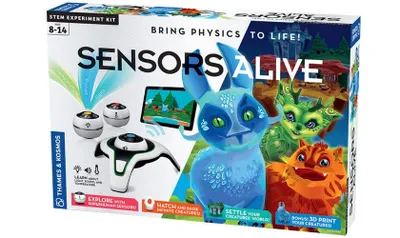Home
A Hands-On Course Sensors Using the Arduino and Raspberry Pi



A Hands-On Course Sensors Using the Arduino and Raspberry Pi
Current price: $250.00
Loading Inventory...
Size: Hardcover
The collection, processing, and understanding of sensor data plays a central role in industrial and scientific activities. This book builds simplified models of large industrial or scientific installations that contain hardware and other building blocks, including services for databases, web servers, control systems, and messaging brokers. A range of case studies are included within the book, including a weather station, ground-vibration measurements, impedance measurements, interfacing medical sensors to web browsers, the profile of a laser beam, and a remote-controlled and fire-seeking robot.
This second edition has been updated throughout to reflect new hardware and software releases since the book was first published. Newly added features include the ESP32 microcontroller, several environmental and medical sensors, actuators for signal generation, as well as a chapter on web sockets; all illustrated in new case studies.
This book is suitable for advanced undergraduate and graduate students taking hands-on laboratory courses in physics and engineering. Hobbyists in robotics clubs and other enthusiasts will also find this book of interest.
Features:
https://github.com/volkziem/HandsOnSensors2ed
Volker Ziemann obtained his PhD in accelerator physics from Dortmund University in 1990. After post-doctoral positions in Stanford at SLAC and in Geneva at CERN, where he worked on the design of the LHC, in 1995 he moved to Uppsala where he worked at the electron-cooler storage ring CELSIUS. In 2005 he moved to the physics department where he has since taught physics. He was responsible for several accelerator physics projects at CERN, DESY and XFEL. In 2014 he received the Thuréus prize from the Royal Society of Sciences in Uppsala.


















